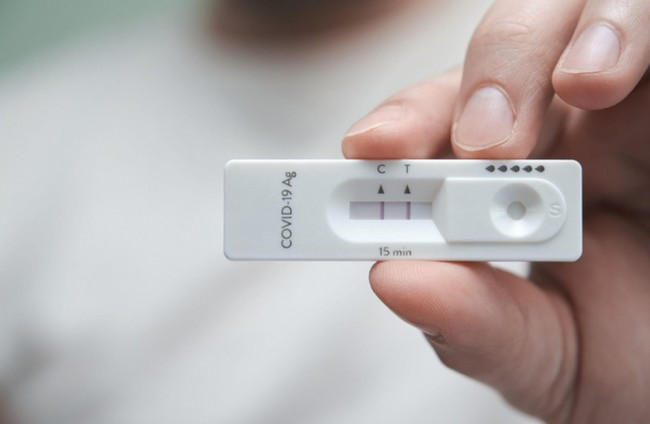OVER 40% OF people who have experienced symptoms of long Covid following a Covid-19 infection have said their ability to conduct daily activities has “reduced a lot” as a result.
The findings come from an Ireland Thinks survey conducted between 1 and 4 June, among a sample size of 1,024 which Ireland Thinks said is “an exact replica of the census”.
Of the 1,024 respondents, 5.6% said they had experienced long Covid symptoms in the past month, while 4.9% said they were not sure – 89.5% said they had not.
Of those who said they had experienced symptoms of long Covid in the past month and that these symptoms started over 13 weeks ago, 42.1% said their ability to conduct daily activities had “reduced a lot” as a result, while 50.3% said it had “reduced a little”.
Some 7.7% said that the symptoms of long Covid had no effect on their ability to conduct daily activities.
Among females, 62.6% said their ability to conduct daily activities had reduced a lot, compared to 14.7% of men.
However, Ireland Thinks noted that the sample sizes – accounting for people who had both experienced symptoms of long Covid in the past month and have symptoms that started more than 13 weeks ago – are low and that the figures should be treated with caution.
Of this sample group, 85% had experienced fatigue in the past month, 51% have experienced shortness of breath, and 40% have reported having sleep problems.
Some 46% have also experienced memory problems, while 58% reported having muscle ache.
Independent TD Denis Naughten said long Covid is having a “profound” impact on the workforce and presents “complex and far-reaching challenges”.
“In light of this survey data showing the ongoing severity of long Covid, neither the Social Welfare rules nor the treatment plans for patients are being revised or updated,” said Naughten.
The HSE recently told an Oireachtas Health Committee that it intends to review how it cares for people with long Covid “in due course” and will not change the interim model of care until new evidence emerges on the condition.
Naughten added that this approach to “delay and deny the effect of long Covid will have long-term repercussions, impacting patients’ recovery and their ability to contribute fully to our society once again”.
The Ireland Thinks survey comes amid recent high levels of Covid-19 transmission.
A total of 1,042 cases of Covid-19 were notified to the Computerised Infectious Disease Reporting system (CIDR) between 9-15 June, up from 650 cases the previous week.
The number of people hospitalised as a result also increased by 56% in the same period, with 486 hospitalisations reported, compared to 321 the week before.
In a statement, the Health Surveillance Protection Centre said that as with previous waves, “widespread circulation of COVID-19 often leads to an increase in people experiencing severe disease”.
Readers like you are keeping these stories free for everyone...
A mix of advertising and supporting contributions helps keep paywalls away from valuable information like this article. Over 5,000 readers like you have already stepped up and support us with a monthly payment or a once-off donation.




















































